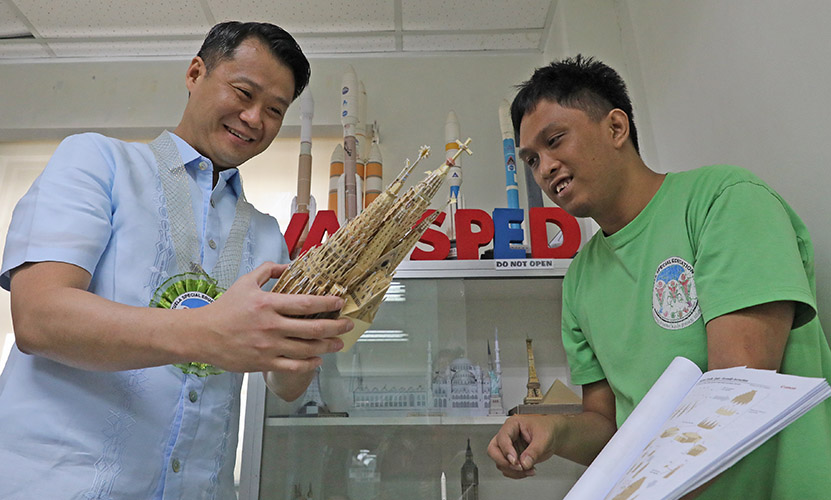Senator Win Gatchalian is seeking the inclusion of medical diagnosis for children with disabilities in the roll-out of the Universal Health Care Law.

Gatchalian strongly pushes for an Inclusive Education as stipulated in his Senate Bill 171 seeking to establish Inclusive Education Learning Resource Centers in all public schools nationwide.
Inclusive Education means all students, disabled or non-disabled, are placed together in general education classes so that they can receive high-quality interventions and support that enable them to meet success in the core curriculum.
He indicates that diagnosing disabilities in children is necessary to gauge their specific need and capacity before they can be officially categorized as “children with disabilities”. On the other hand, diagnostic procedures come at a high cost and some parents would opt to skip subjecting their children to proper medical diagnosis. Findings of such screenings can identify needed interventions so that learners can be equipped to participate in regular classrooms.
In the absence of medical diagnosis, teachers rely mainly on some assessment tools to identify and address the learning difficulties of children. One example of an assessment tool is the Early Childhood Development Council (ECCD) Checklist, which helps teachers identify children who are at risk of having developmental delays.
Another tool is the classroom activity-based Multi-Factored Assessment Tool (MFAT) administered to Grade 1 students. These are the only available tools that guide teachers on instructional design and decision-making, including the formulation of an individualized education program per learner.
“The first stage should be diagnosis so that the teacher will know at what stage and what kind of approach will they be giving the students. I think that is a fundamental requirement for inclusive education, which our system is not doing right now because of high expense,” said Gatchalian, Chairman of the Senate Committee on Basic Education, Arts and Culture.
“We would include in our proposed bill to include the payment for diagnosis in the universal health care program. Hindi siya covered ngayon under universal health care”, Gatchalian added.
Senate Bill 171 also seeks to capacitate regular teachers, administrators, non-teaching personnel, and parents through trainings on disability awareness and inclusive education.
Records from the Department of Education (DepEd) show that there are 14,000 regular schools that cater to SPED students and separate SPED centers nationwide. While there are 231, 631 self-contained learners with disabilities or those who are not part of regular classrooms, SPED teachers are only around 4,000 nationwide.
The Philippine Health Insurance Corporation (PhilHealth) estimates that one out of seven or around 5.1 million Filipino children are living with disabilities.


